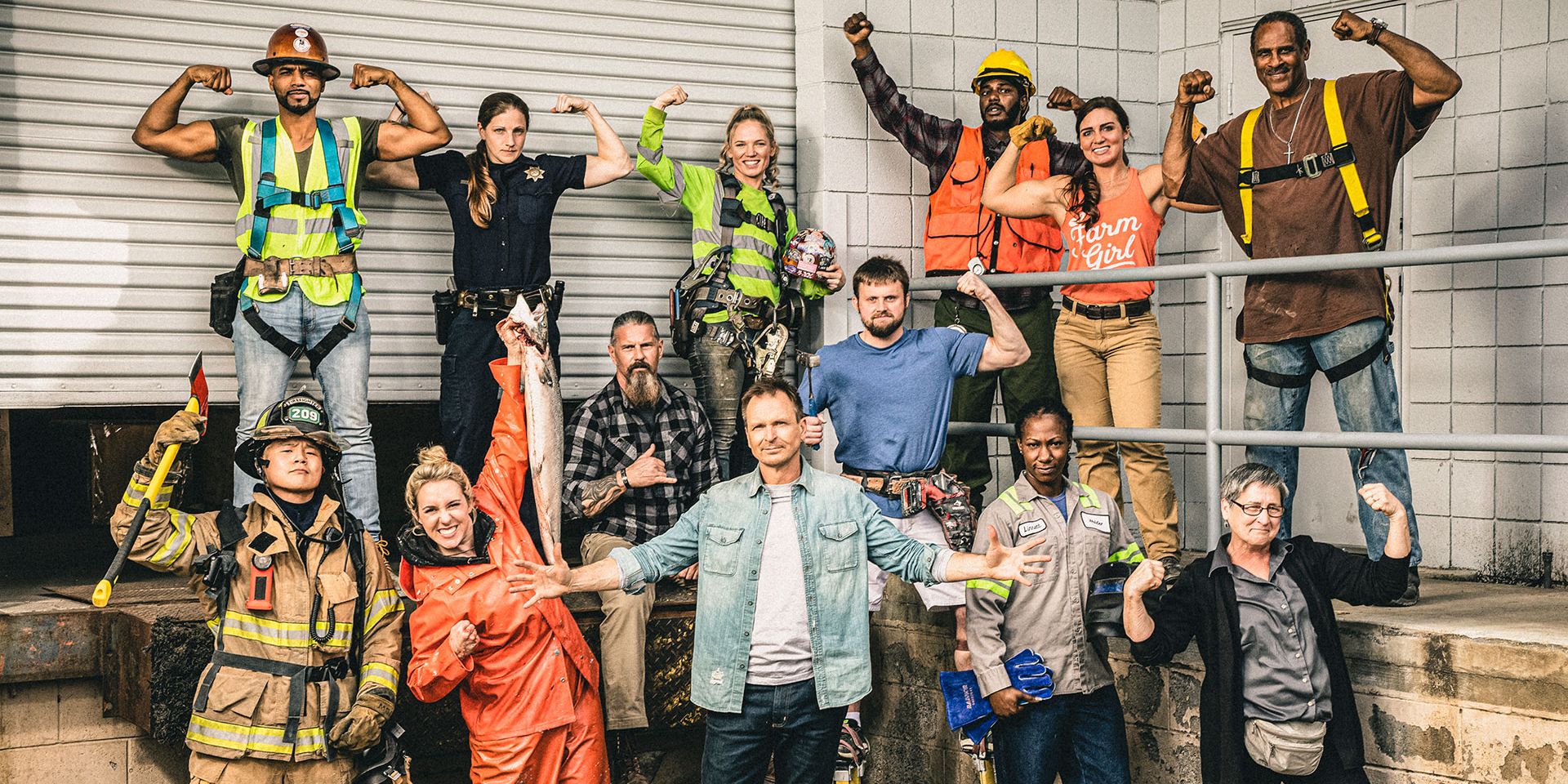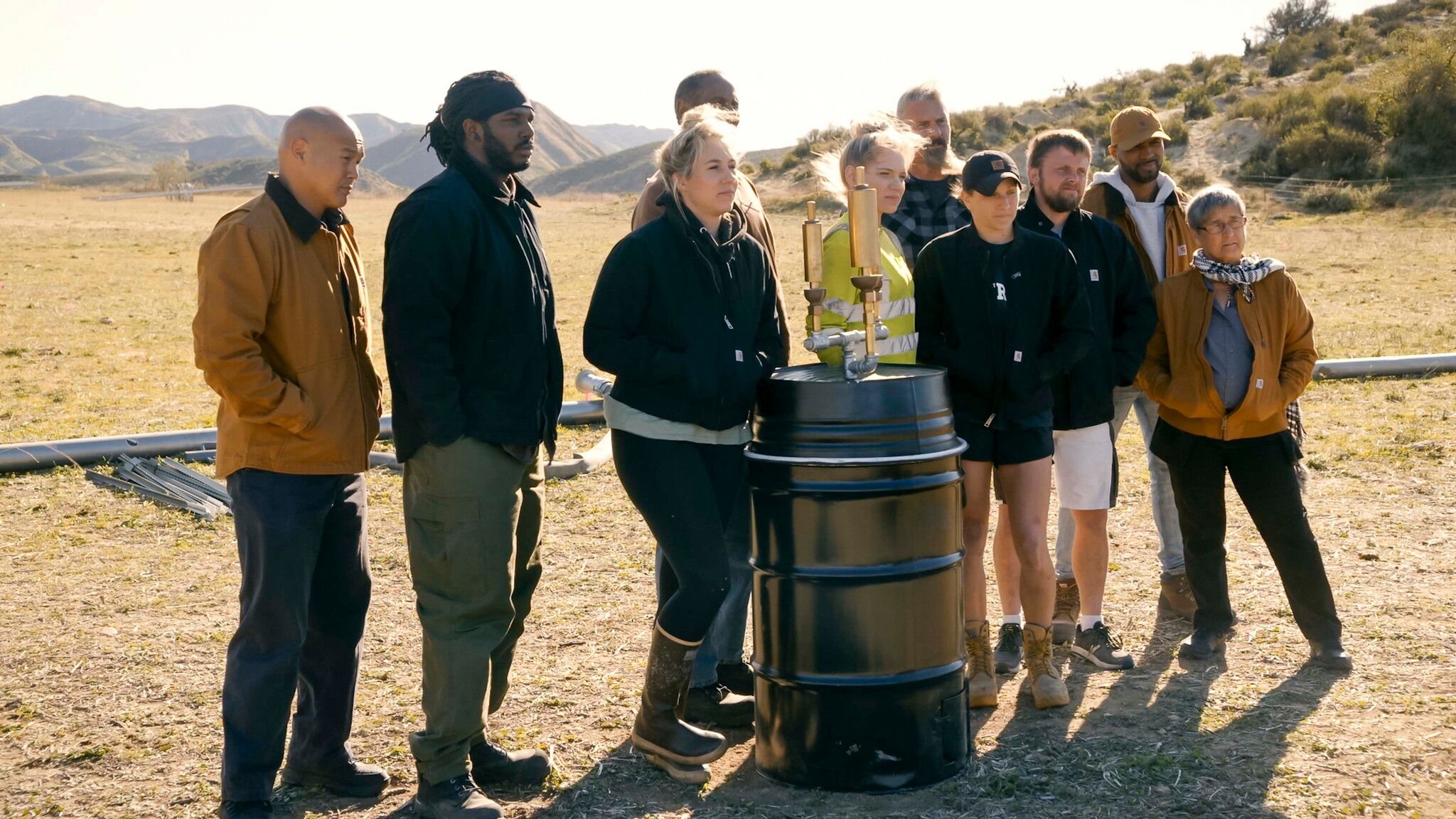CBS' latest reality program, Tough as Nails, celebrates the strength of America's working class, but a key element of the series was actually adapted from host Phil Keoghan's time abroad. Keoghan, host and executive producer of The Amazing Race since its debut in 2001, expanded his talents to a new competition format that bolsters the toughness of blue-collar workers. The series follows 12 contestants used to working long hours with their hands as they compete in challenges based on blue-collar projects for a $200,000 grand prize. But there's a twist.
Tough as Nails is actually two simultaneous competitions in one show. In the premiere, the 12 contestants were split into two teams: team savage and team dirty hands. Each episode features a group challenge in which the teams compete against one another for a $12,000 cash tip handed to them right then and there. But the episode also includes an individual challenge where each contestant competes to stay in the running for the grand prize awarded to the last woman or man standing at the finale. One challenger is eliminated from the individual competition at the end of each episode, but stays on the cast to participate in group challenges throughout the duration of the season.
In an interview with Screen Rant, Keoghan opened up about Tough As Nails' unique competition format. “I've always felt that there's always this wasted potential energy when you lose really great characters on the show, and I've always loved the idea that we could add these two mutually exclusive competitions,” he said. While toying around with ideas on how to keep the cast intact while still creating a sharp sense of competition and anticipation for the finale, he took note of the Tour de France's format during a trip abroad. There's the individual cross-country race that the world-famous event is known for, but there are also team competitions and side events. To reconcile the desire for a season-long full cast and a winner at the end, the two-competition system was born. “You don’t have to win the whole thing, and can still find a way to compete," he said. "It isn’t just about one person.”
This format not only allows beloved contestants to rack up more screen time after their chance at the finale expires, but it also respects the sacrifices made to compete in the first place. Reality shows are rarely forthcoming with the casting process, especially in regards to what happens to a person's life when they give up their privacy for television. Unlike contestants on series like Love Island or The Challenge, most of the Tough as Nails challengers don't plan on trading in their lives for a career in reality or influencing.
"You ask these people to take time off work, and that's a big deal for them," Keoghan explained. "Some of them are working paycheck to paycheck, holding down two jobs. The idea that you would get them there, add them on the show, and then send them home with nothing— it just didn't feel right. So I'm glad that everybody walks off with money on the show, whether they're the overall winner or not."


